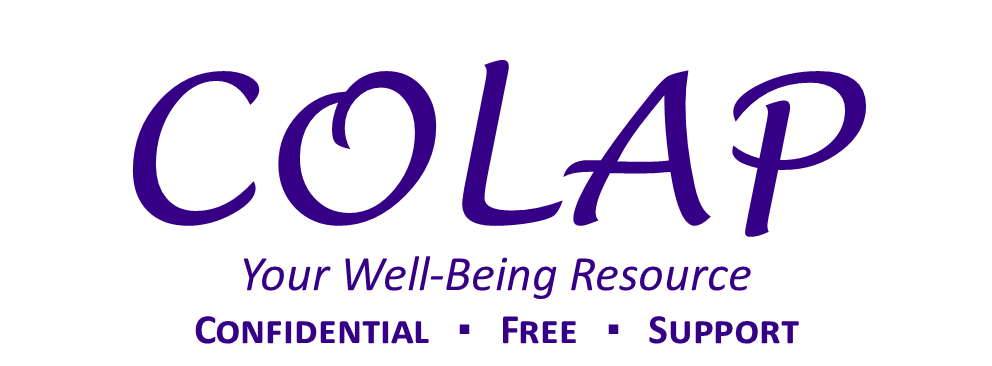3 Simple Tips for Improving Communication

Colorado Lawyer Assistance Program
2490 West 26th Avenue
Denver, CO 80211
303-986-3345
www.coloradolap.org
“It’s not a lack of love, but a lack of friendship, that makes unhappy [relationships].” ~Nietzsche
1. Really, Truly Listen: Everyone craves the undivided attention of someone else, particularly those they care about. Most of us are busy trying to monopolizing the conversation or, when the other person is talking, figuring out ways to change the topic back to ourselves or problem solving for the other person. However, true listening occurs when we stop thinking while someone else is talking. Most of us who practice law have fast minds that are constantly moving. Give yourself permission to listen, rather than thinking, when someone is talking. Pause for a few moments after they are finished, and then respond thoughtfully to what they have expressed. Do not interrupt, and do not dissociate and “zone out.” These are signs that what the other person is talking about is not important to us.
2. Ask for What You Want: Too many of us assume that other people are “mind readers:” they should inherently know our every unspoken desire. Unless you are with a telepath (which is unlikely), you must verbally express your wishes, feelings, instructions, and requests. After you verbalize your wishes, make the effort to ascertain if the other person heard what you said. Communication only takes place when one person communicates something, and the other person heard and understood them. Otherwise, it’s a one-way street. The next time you get upset because someone didn’t do what you wanted them to, ask yourself: did I communicate what I wanted? Did the other person respond verbally that he or she understood what I said? This doesn’t mean that the other person will agree or do what you want; but, you now have a platform to communicate further about it.
3. Express and Accept Gratitude: Having appreciation and gratitude for the positive aspects of our lives improves our own emotional and mental health. When we express that appreciation to the people in our lives who care about us and who make our lives better (personally or professionally), it improves our relationships as well. Relationships can become strained when we focus on what we believe are the negative aspects (the other person isn’t doing or saying what we want them to); but those negative aspects are often related to our own control issues. Human beings, unless they have certain mental illnesses, enjoy helping and caring for others. If someone in your life does something that you appreciate, tell them. And, conversely, if you do something kind and loving for someone else, and they thank you, be sure to accept and acknowledge their gratitude. Some of us have a tendency of down-playing or avoiding compliments; but just as it feels good to do something kind for someone else, people also have a need to thank us for our kindness. Generosity is not just giving, it is also accepting the gratitude and caring actions of others. If someone wants to help you, let them!
By Sarah Myers, JD, LMFT, LAC Executive Director, Colorado Lawyer Assistance Program October 2015 © Colorado Lawyer Assistance Program, 2020
The Colorado Lawyer Assistance Program (COLAP), your free, confidential and independent well-being program for Colorado judicial officers, is available at www.coloradolap.org or by calling 303-986-3345. If you or a colleague are in need of confidential support, referrals, direction on how to resolve personal or professional stressors, or are interested in a free well-being consultation, please contact COLAP directly for assistance.